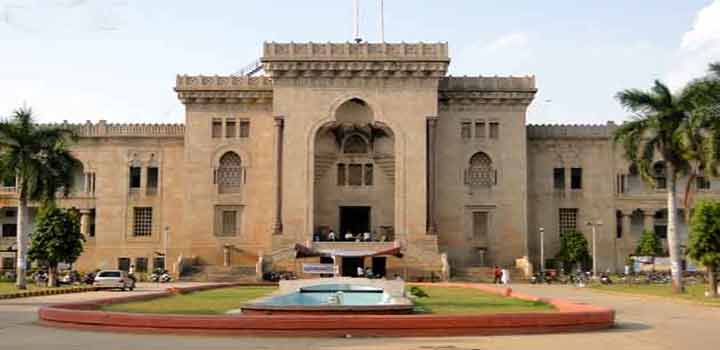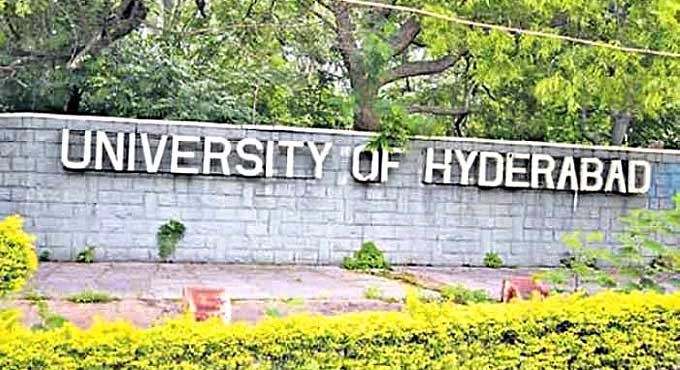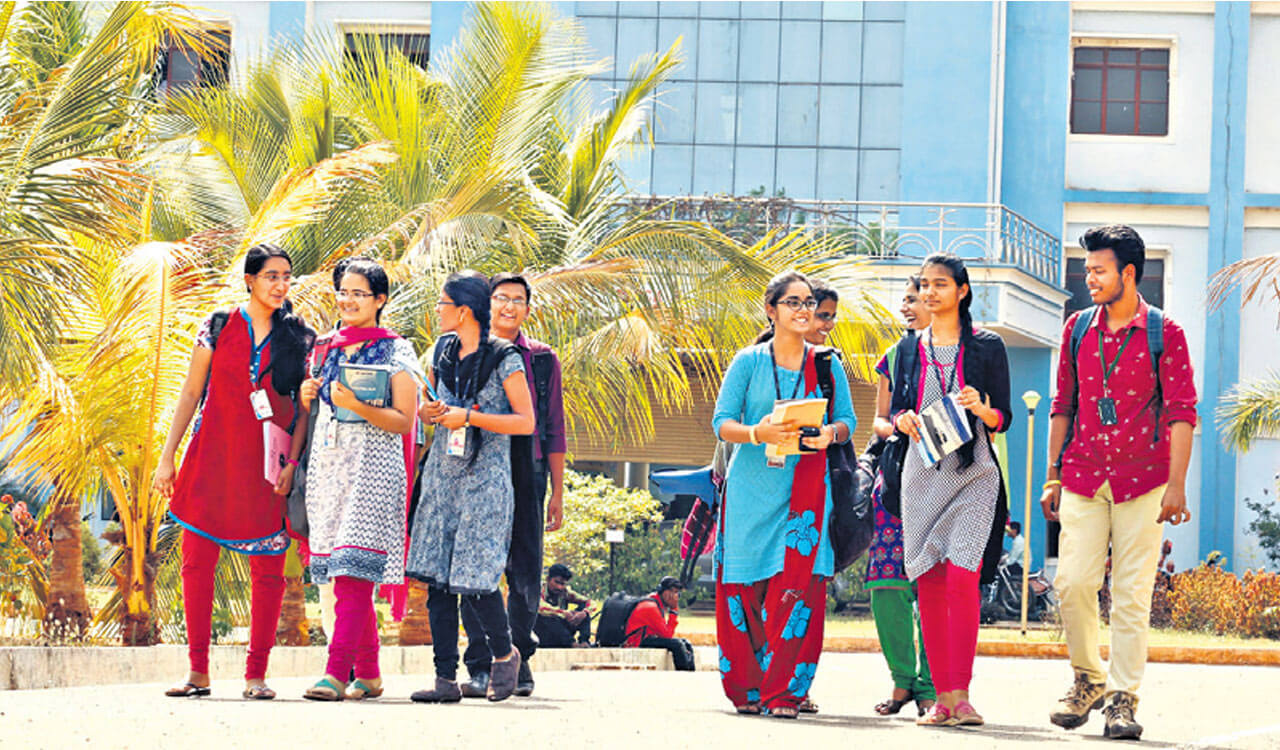Osmania University all set to build six new hostel complexes
Mon 10 Jul 2017, 09:31:27

Hyderabad: The crumbling infrastructure at hostels of Osmania University is all set to get a new look with the university deciding to construct six new hostel complexes in the campus.
Acknowledging that the university hostels were not in proper condition, the university administration is working out a detailed plan to build new hostel complexes and ensure improved accommodation facilities for the students.
OU Vice-Chancellor S Ramachandram said, “Hostels are not in a good condition. The first priority of the university is to construct six new hostels for students and provide good accommodation facility.”
The new facilities for the bonafide students are to come up as part of university centenary celebrations. The varsity authorities have started chalking out plans and designs which will be sumbitted to the government for relase of grants.
For the centenary celebrations, the State government has sanctioned Rs 200 crores to the university and has already released Rs 50 crores. University officials said the idea was to use the required budget from this allocation for new hostels.
At present, there are 16 men and five women hostels catering to the needs of students on the campus as well as constituent colleges. Most of these decades old structures have started to crumble and some hostels were closed down after they were termed as unfit for staying.
Following a report submitted by the buildings division, the administration has commenced renovation works in some hotels and urged all students who have completed their courses and are overstaying in the hostels, to vacate.
e-hostel to protect genuine students
In a move aimed at keeping non-boarders at bay, the university is contemplating ‘e-hostel’ concept through introduction of biometric machines.
The idea being toyed by the officials is to install biometrics at all hostels, both in the old and the new facilities, and link them to a centralised system. “This will help in ensuring that only the bonafide students are using the hostel facility and we are working out the strategies,” said a senior
official.
official.
The university administration is keen on ensuring that non-boarders do not affect the facilities meant for the genuine students.
Officials estimate that there are close to 4,000 non-boarders staying in the hostels and eating away the space of legal boarders on the campus. This apart, they illegally use the mess facilities and as a result, the monthly bill of hostel inmates goes up on regular basis.
Under the new system, the university intends to have token system in all mess facilities on the campus.
“Biometric systems will be installed. Bonafide students will be given tokens and the same should be used to have food in the mess. This will solve the issue of inflated mess bills of students and also for provisions,” a senior professor said, adding that e-hostel facility was being used in social welfare hostels.
Biometric attendance a must
After the Jawaharlal Nehru Technological University-Hyderabad, it’s now the OU which has decided to make biometric attendance system mandatory in all the colleges under its ambit.
The university will soon be issuing a circular to all the colleges to install biometric systems to record attendance of students, teaching and non-teaching staff. “We will implement the biometric system in the phased manner,” said Professor S Ramachandram, Vice-Chancellor, OU.
Already, the concept is under implementation in the University College of Engineering, Administrative building, University College of Commerce and Business Management, University College of Arts and Social Sciences.
Only at the College of Engineering, the university is recording attendance of all students and staff, but at other colleges, the new system is restricted to officials and non-teaching staff only.
“After biometrics were installed in the University College of Engineering, attendance of both students and teachers has sharply gone up. Technology is the only way to set right the system in the university. The university has placed an order and once machines are delivered, they will be installed in colleges,” said an official.
No Comments For This Post, Be first to write a Comment.
Most viewed from Edu and Jobs
AIMIM News
Latest Urdu News
Most Viewed
May 26, 2020
Which political party will win the Jharkhand Assembly elections 2024?
Latest Videos View All
Like Us
Home
About Us
Advertise With Us
All Polls
Epaper Archives
Privacy Policy
Contact Us
Download Etemaad App
© 2024 Etemaad Daily News, All Rights Reserved.





























